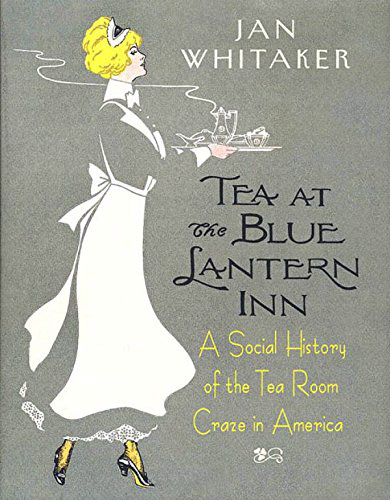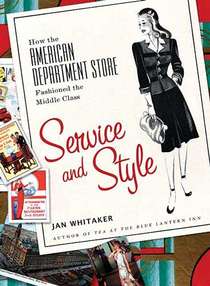 Restaurant names such as Plantation, Old/Ole Plantation, and Southern Plantation leave me wondering why. Why adopt a name that references slavery and is offensive to a lot of people, particularly if they are Black?
Restaurant names such as Plantation, Old/Ole Plantation, and Southern Plantation leave me wondering why. Why adopt a name that references slavery and is offensive to a lot of people, particularly if they are Black?
Plantation names are similar to ones such as Sambo’s, Mammy’s Kitchen, or those with the initials KKK. Maybe not all who have chosen such names intended to insult anyone, but were unaware of their resonance. But, really, how much reflection does it take to realize that such names carry deeply negative historical associations?
Isn’t it just plain bad business to have an offensive name? Evidently the Disney company thought so. They tried hard to create a fictitious, slavery-free history of their Louisiana resort Dixie Landings by avoiding the name plantation. Eventually they shed “Dixie Landings” as well, becoming Port Orleans Riverside. Of course, white-washing history is controversial in its own right, but clearly Disney recognized that “plantation” held liabilities.
Ostensibly, restaurants named Plantation were meant to convey gracious Southern hospitality. But, again, the question is for whom? If your ancestors were enslaved and forced to do hard labor for white people who lived graciously off their profits, would you be charmed by this concept?
Although it might be assumed that most Plantation Restaurants were in the South, this is not the case. Since the early 20th century, and especially after World War II, they have appeared in Michigan, Wisconsin, California, Illinois, Ohio, New Jersey, Massachusetts, Colorado, Connecticut, and other northern, western, and midwestern states. In the 1920s and 1930s the Seattle WA environs were fertile ground for restaurants with racially offensive names. In addition to The Plantation, there was Mammy’s Shack, Henry the Watermelon King, Coon Chicken Inn, and Uncle Tom’s Cabin.
Why would anyone choose the name Plantation? Perhaps because they had access to a building that looked like a Southern manor house, so it seemed “natural’ to name it that. But then, how to explain restaurants that had no magnolias, no romance whatsoever and looked more like roadhouses than elegant mansions [above, Auburn IN].
Others added “columns” in a not-very-convincing attempt to mimic a plantation mansion.
And then there were the Plantation Restaurants that exhibited confused identities not expressive of their name with respect either to cuisine or ambiance. What were patrons to make of New York City’s Old Plantation on West 47th in the 1920s with its Mexican dishes? The Old Plantation Restaurant near Lawton OK served bratwurst and schnitzel in the 1960s. Nor is there anything about pancakes or a vaguely early American exterior that would seem to suggest the name Pancake Plantation. Equally odd, Charleston’s 1970s Plantation Restaurant was decorated with wagon wheel light fixtures and red tablecloths.
It seems more likely that the popularity of the name can be explained by large numbers of white people who actually loved the “moonlight and magnolias” aura that surrounds plantations. Many advertised for banquet trade, and may have wanted to attract wedding parties. Even today many white women reportedly associate plantations primarily with romance as portrayed in the film Gone With the Wind.
When – and if – proprietors were informed that quite a few Americans were offended by such a name, how would they respond? The answer is not on record. But having received many comments to this effect on other race-related posts, I can imagine many would reply: it was long ago, don’t be so negative, get over it.
There are still quite a few restaurants named Plantation in business today. I’d say it’s way past time to reject that as a name.
© Jan Whitaker, 2020





 It's great to hear from readers and I take time to answer queries. I can't always find what you are looking for, but I do appreciate getting thank yous no matter what the outcome.
It's great to hear from readers and I take time to answer queries. I can't always find what you are looking for, but I do appreciate getting thank yous no matter what the outcome.



A native Southerner, here.
“Plantation” was not a name solely applied to a “Gone With the Wind” type fictional Tara, but it was a large, self sufficient farm that may or may not have had enslaved people on it. Not everyone lived in some uber wealthy manor house, but more often it was self sufficient yeoman farmers.
What is offensive to me, are people unfamiliar with a culture, but willing to accept definitions of it made in ignorance, demanding that others erase history and culture.
Yes, and I am well aware of that. But as you surely know the term has taken on a quite different meaning and set of associations and that has overtaken the purely descriptive meaning.
As recently as 2001 “The Confederate House” was an upscale restaurant in Houston serving Southern style cuisine and decorated with Civil War memorabilia. The Bush family and Lyndon Johnson ate there. It changed its name to “The State Grille” and eventually went out of business.
Totally agree with you.
A bit off topic, but in the 80s there was a gay bar named The Old Plantation in Tampa, Florida. From what I just saw online, there was one in Houston as well. Talk about strange.
thank you. can’t help but reflect that my high school prom theme was ballad of the old south, complete with bandstand on a columned mansion porch. romantic and rich upperclass. ohio 1962. beginning of the civil rights movement there but no mental connection yet to that romanticized slave based society. as well, up until recently i referred to the beginning of Northampton as a settlement, until informed it was actually referred to as a plantation. colonization, a conquering culture literally planted in someone else’s land. then idealized, normalized.
Thank you! I think many of us grew up largely unconscious of our privilege and of our ignorance. But now we have reached a point where it actually takes strenuous effort and resistance to deny how deeply racism is rooted in our society. It’s time for us white people to wake up and change what’s “normal.”
You might also note that the word “plantation” is not exclusive to the large farms of the slavholding south, nor even to the United States. For example, Rhode Island’s official name is “the State of Rhode Island and Providence Plantations.” And there are tree plantations and tea plantations around the world.
I am well aware of that, but that is not what these restaurants are about. And no matter how innocently the name is chosen, why take the risk of offending people?
This is not political correctness, it is Business 101.
Just one factual comment here, Jan, and thank you for bringing up the topic. Just so you are all aware, the restaurant name “Sambo’s,” while in retrospect not meant to refer to African-Americans in any derogatory context, was actually named by the two men who were partners and who started the chain. Here are the facts regarding the genesis of said chain, from Wikipedia as well as a good few other sources: “Sambo’s was an American restaurant chain, started in 1957 by Sam Battistone Sr. and Newell Bohnett in Santa Barbara, California. Though the name was taken from portions of the names of its founders, the chain soon found itself associated with The Story of Little Black Sambo.” I believe that many, if not most of the stores with that name were taken over/bought by Denny’s.
All very well, and yet they chose that name despite the very negative associations. Why not Batbo’s?
You’re assuming that they knew it was offensive. Even as recently as some fifteen or twenty years ago I knew someone who had not the least idea that “Sambo” was offensive; and she was not an uneducated woman. In her family, that was simply how they made affectionate nicknames: James became Jimbo, Sam became Sambo, etc.
Possibly they did not, but my post was about an unfortunate name choice that took quite a lot of effort to get changed. It was not about the founders. Nor did I “accuse” them of explicit racism.
Jan – Thanks for this post – fascinating. A few days ago, I read that the Sambo’s in Santa Barbara is finally changing its name. Every time we have walked by it on vacation, I’ve wondered why it was still called that.
Thank you Jan for this much needed article on racism in the restaurant business whether the proprietors were unconscious or not. It is indeed time to become conscious in our sad and tired world.
Thank you, Nancy, and you are completely correct. That being said (written) it is also important that in terms of the founding of the no-longer in existence chain, the facts and truth regarding how it came to be named are important, especially in light of today’s situation, your last sentence certainly apropos and and to which I agree completely.
I remember one when I was a kid….fried grasshoppers were on the menu along with chocolate covered ants….I will never forget that.
Sounds like maybe you were in another country.
No ….Long Island, New York.
You never forget something like that.